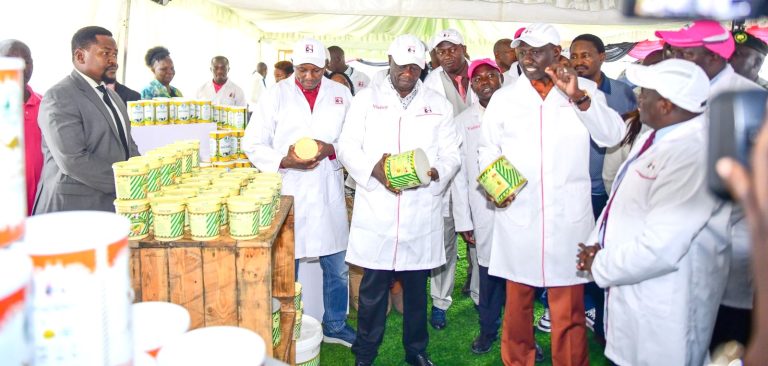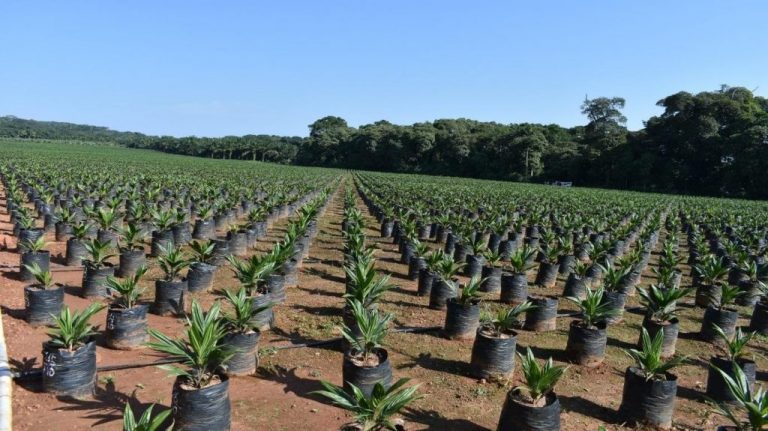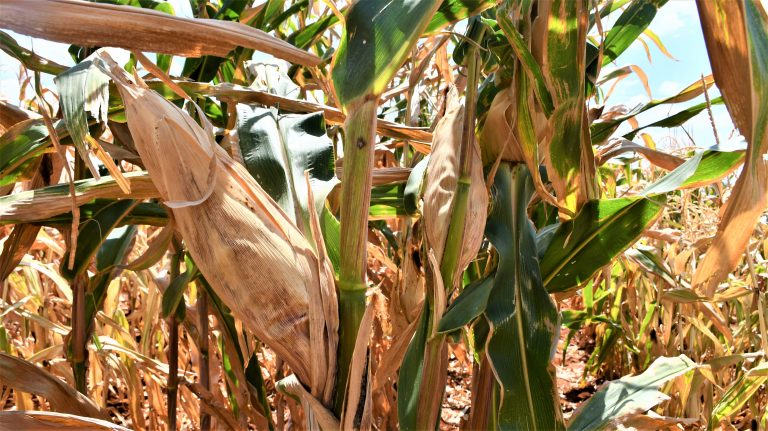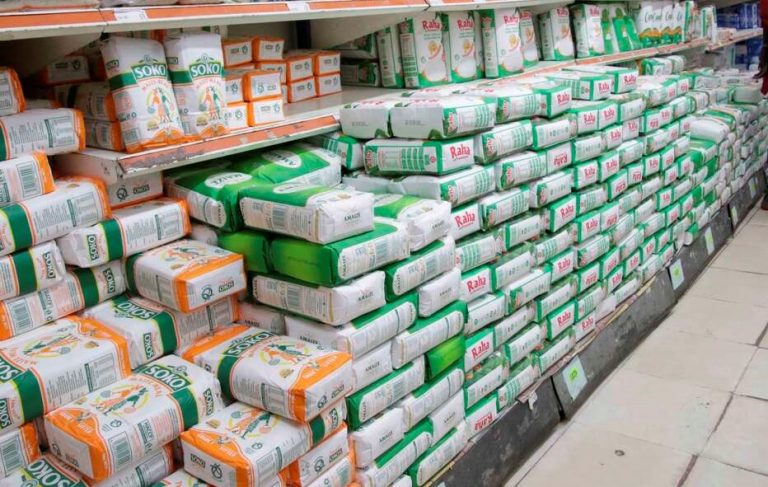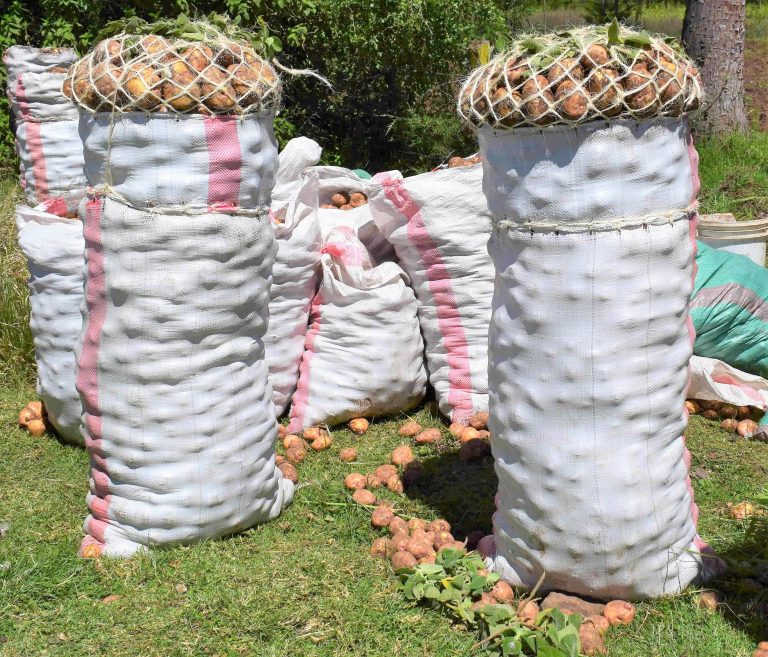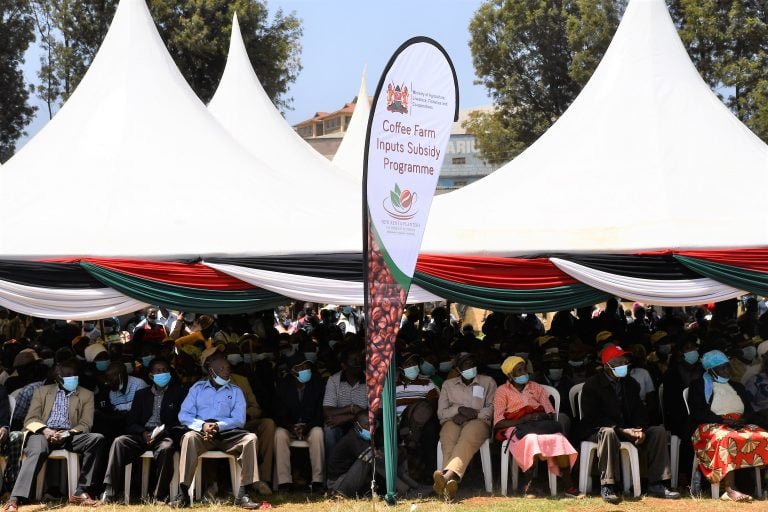By Kimuri Mwangi
The Dairy Industry Regulations, 2021 have been launched and are now law since the drafting started in the year 2009. The regulations touch on various aspects while retaining a minimum farm gate price of Kshs. 33 per kilogram of milk delivered which the government introduced on 27th February 2020.
Launching the regulations, Agriculture CS Peter Munya said the dairy sector continues to be faced with several challenges including seasonality of production, low productivity, poor quality, costly and inaccessible animal feeds, and lack of adequate regulatory framework among others.
“Today marks a milestone in the regulation of the dairy industry in the country. The earliest legal instrument to regulate the dairy industry is the Dairy Industry Act. The Act was assented to on 11th August 1958. Since that time, there have been about 13 amendments to the Act, the last one being in 2006. Under the Act, there have been subsidiary instruments by way of regulations and orders. These Regulations are made pursuant to section 19 of the Dairy Industry Act that empowers the Cabinet Secretary to make regulations to provide for detailed issues and procedures that cannot appropriately be part of the Act. The dairy regulations 2021 have gone through the requisite legal and constitutional requirements and have been exposed to various stakeholders whose input, feedback, and comments have been incorporated at every stage of the development process” said Munya.
The regulations have been developed in conjunction with the county governments who will lead in the implementation as agriculture is devolved. Esman Onsarigo who is the Kisii County agriculture CEC and the Chairman of the CEC’s Caucus, said that the CECs have been involved at all stages during the development of the regulations hence they will lead in their implementation as they were part of the process. “The National government and counties partnered in the development of these regulations. I thank them for their valued input and participation in the finalization of the regulations and equally, I also recognize that they will play a critical role in the implementation of these regulations. I give my commitment as a Ministry that we will closely work together to ensure the successful implementation of these regulations,” said CEC Munya.
The Kenya Dairy Board Managing Director Margaret Kibogy said the regulations were necessary to ensure even milk ATMs were regulated and ensure there was order. The milk ATMs have increased in the country as they are popular with consumers as they seem to be hygienic.
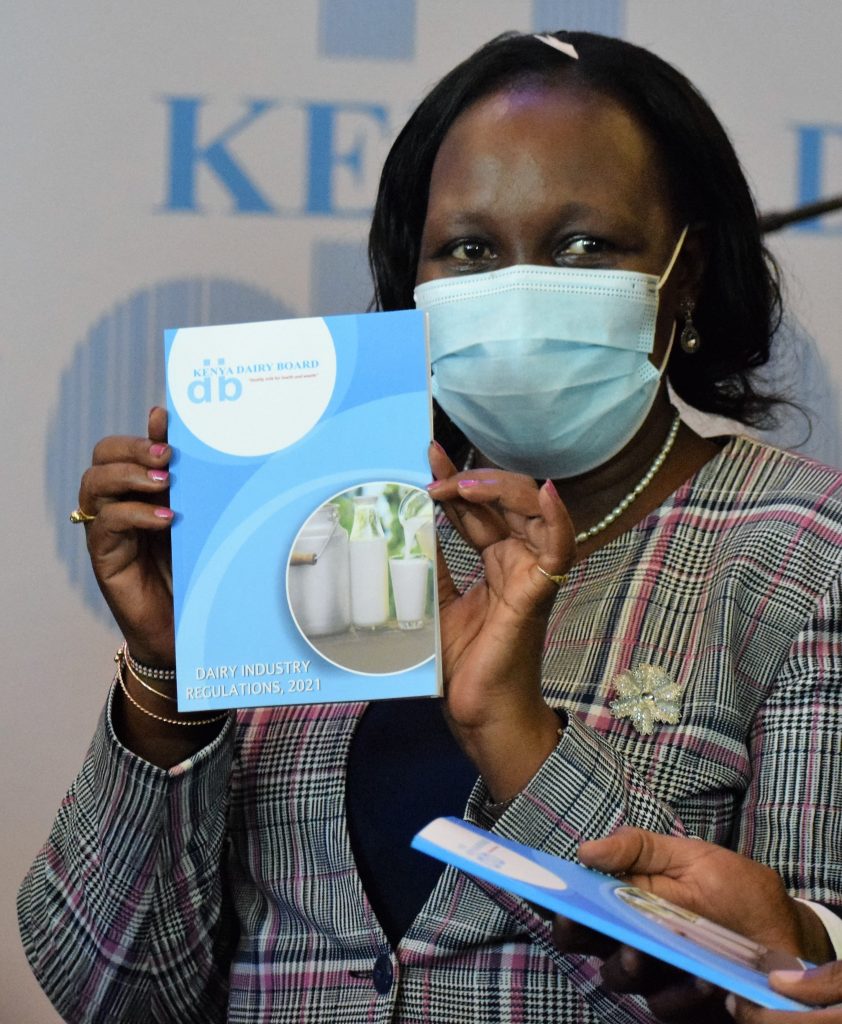
The regulations as outlined by CS Munya are as follows;
1) The Dairy Industry (Registration, Licensing, Cess and Levy) Regulations, 2021
Farmer registration will be conducted by the counties, will be free, and a one-off exercise. A dairy cooperative society, a producer group, or aggregator shall maintain an updated register of its members for use in registration. Through this registration, counties will maintain an updated database on the number of farmers, dairy herd data, and milk production. The consolidated information from the counties will inform planning and decision-making at the national level. Through the separation of powers between national and county government, this regulation provides for counties to issue a license, and for the Board to issue a regulatory permit to a dairy business operator.
2) The Dairy Industry (Returns, Reports, and Estimates) Regulations, 2021
The Dairy Business Operators will submit monthly returns on processed milk and the quantities produced to the County Government or the Board for policy and investment decisions. Relevant data and information collected through monthly returns will be readily available to the counties and the national government for planning purposes.
3) The Dairy Industry (Compliance Officer) Regulations, 2021
The Board may request the County to nominate qualified staff of the County government for Gazettement by the Board as a compliance officer. This regulation ensures that marketed dairy produce meets the standards while providing for offenses and complaints against a compliance officer.
4) The Dairy Industry (Produce Traceability and Recall) Regulations, 2021.
The regulation is aimed at enhancing consumer protection and safety of dairy produce, improving access to information on marketed dairy produce, and providing a mechanism for tracing and recall of dairy produce. It shall apply to the production, collection, transportation, processing, distribution, and retail of dairy produce. The regulation will further link to existing dairy infrastructure including coolers, testing facilities, and promotes trade internally and externally.
5) The Dairy Industry (Milk Sales Contract) Regulations, 2021
Dairy farmers and producer groups have in the past entered into weak and inadequate contracts with buyers. The dairy regulations will therefore give minimum requirements for contracts and further ensures that the terms of contracts entered between the parties are strictly adhered to enable proper planning. Key elements to the contract will be agreed on between the parties. Only the minimum contents for a milk sale contract are provided for in the regulation.
6) The Dairy Industry (Pricing of Dairy Produce) Regulations, 2021
Concerns over low and fluctuating producer prices have made investments in the sector to be unprofitable, unstable, and uncompetitive. The regulations will ensure a guaranteed minimum price on milk sales which will ensure that their investment in dairy farming gives favourable returns throughout the year. On 27th February 2020, the Government gave a directive on a minimum farm gate price of Ksh 33 per kilogram of milk delivered. Going forward the Ministry through the Board will conduct frequent studies and consultations on the cost of milk production to inform biannual milk pricing reviews. Producer groups and entities shall further disclose monthly payout prices and deductions made to determine farm gate prices. Producer groups are urged not to introduce extra costs that may diminish the profit margins for farmers.

7) The Dairy Industry (Imports and Exports) Regulations, 2021
The regulations are aimed at protecting Kenya’s dairy industry against unfair trade practices, or competition and dumping, and further support government efforts to guarantee food security and self-sufficiency. The regulations provide the procedure for importing or exporting dairy products and ensure that they meet the relevant standards. They underscore the conditions for granting of permits that include the prevention of dumping, whether there is a deficit or surplus, and require regular risk analysis as part of the factors that shall be considered when importing, to support the local dairy sector for growth and sustainability. It further takes into consideration the existence of treaties and cross-border trade agreements across nations. Note that this regulation provides for stiff penalties that include forfeiture to the Board or the destruction of the illegally imported dairy produce material, equipment, additives, or equipment.
8) The Dairy Industry (Dairy Produce Safety) Regulations, 2021
The regulation aims at enhancing compliance to safety standards, promoting self-regulation through the adoption of global best practices, and a mechanism for the Kenya Dairy Board to oversight the dairy industry. These regulations will provide mechanisms for the sale of milk to our immediate neighbors. However, the milk must meet the relevant Standard for raw milk. This milk should not be resold as this will be regarded as hawking.
This regulation provides for requirements for dairy farms, collection centers, milk bars, dispensers, and milk processing establishments including cottages, mini dairies, and processors to meet minimum hygienic conditions for the production of safe and quality milk. It provides for the safety of dairy products through labeling, examination, calibration, records, storage, and distribution for the value chain actors including dairy farms, collection centers, milk bars, milk dispensers, and processing establishments.
Munya said that a nationwide program to sensitize stakeholders on the new dairy regulations will be launched as the implementation of these regulations will not be possible without the full support of all the industry players.



